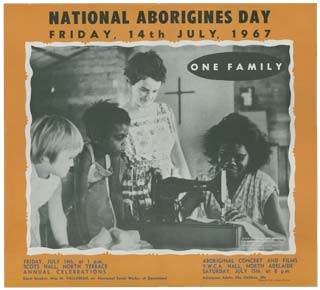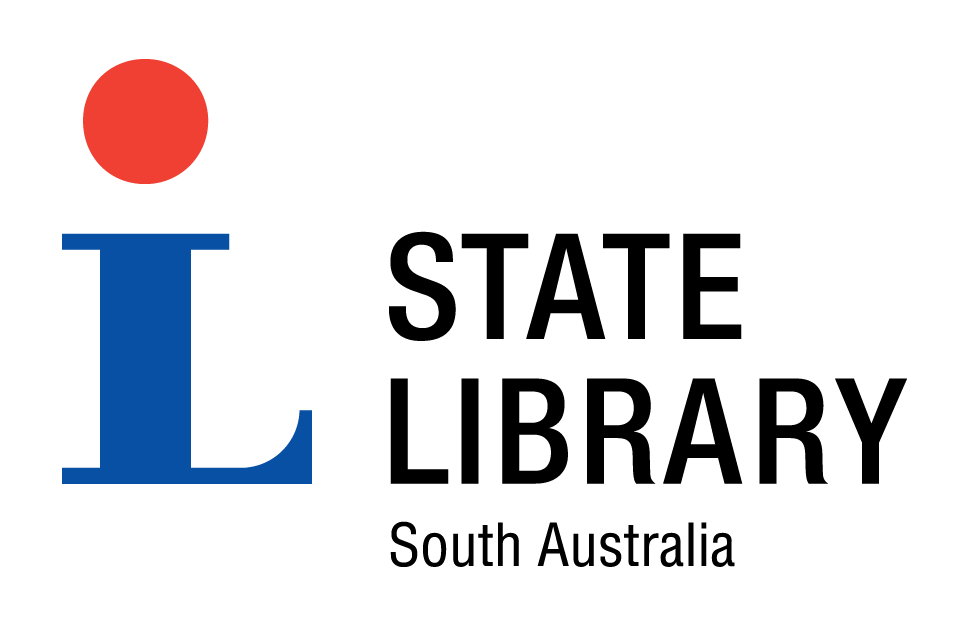
Aboriginal Rights
- Early European Impact

- The Stolen Generations
- The Aboriginal Response
- David Unaipon
- After World War II
- The 1967 Referendum
- The Aboriginal Flag
- Aboriginal Deaths in Custody
- First International Indigenous Women's Conference
- Eddie Mabo
- Hindmarsh Island [Kumarangk] Bridge
- Your house is not our house
- Future Directions
Early European impact
Prior to the arrival of European whalers and sealers on the south coast of Australia in the late 18th and early 19th centuries, the land now known as South Australia had been the home of the Aboriginal people for more than 40,000 years. Extended family groups from the Anangu Pitjantjatjara of the central desert to the Ngarrindjeri of the Coorong maintained a complex tradition of oral history, trade and industry that spanned the land.
The first contacts with Europeans typically were not positive. Sealers crossed the passage from Kangaroo Island to the mainland to trade and to steal Aboriginal women for 'wives'. Despite this contact the British government when drafting the South Australia Act of 1834, declared South Australia to consist "of waste and unoccupied lands which are supposed to be fit for the purposes of colonization" and that "all the lands of the said province ... to be public lands open to purchase by British Subjects." This Act effectively removed from the Aboriginal people any prior claim to land ownership and instituted the claim of Terra Nullius or land belonging to no one.
The contradictions continued however and the Letters Patent establishing South Australia declared in February 1836 "PROVIDED ALWAYS that nothing in those our Letters Patent contained shall affect or be construed to affect the rights of any Aboriginal Natives of the said province to the actual occupation or enjoyment in their own persons or in the persons of their descendents of any Lands therein now actually occupied or enjoyed by such Natives". Then in December 1836, Governor Hindmarsh proclaiming the government of the new province declared his intention "to take every lawful means for extending the same protection to the native population as to the rest of His Majesty's subjects."
These were good intentions but the Act of 1834 had precedence and European concepts of the occupation and enjoyment of land were at considerable odds to traditional Aboriginal land use. Similarly the new colonists, many of whom were escaping religious persecution in their own lands, had a 19th Century zeal for bringing Christianity to the 'Natives'. As early as 1837 the government had appointed a Protector of Aborigines, with his duties including "instructing the natives in reading, writing, building houses, making clothes, cultivating the ground, and all the ordinary acts of civilization."
The first Act of the Provincial government to mention Aboriginal people was the 1839 'Act to regulate the Retail of Liquors and to preserve good Order in Licensed Public Houses', sect. XXVIII, "no person whatever shall ... sell, barter, exchange, retail or give, or permit to be sold, bartered, exchanged, retailed or given any liquor to an aboriginal native of this Province under a penalty of not less than one pound or more than ten pounds for each and every offence".
European paternalism, diseases, justice, and failure to recognise the value and importance of Aboriginal spirituality, land use and culture, quickly lead to a decline in the population and living standards of the Aboriginal people of Tandanya (the Adelaide Plains) and then the rest of the province as European settlement extended to other regions.
Items 13 - 24 of 29














